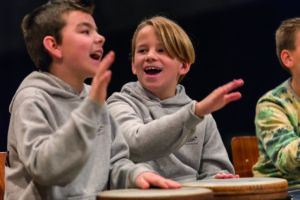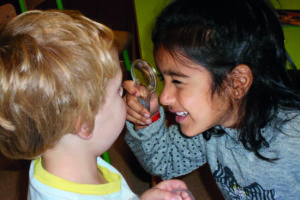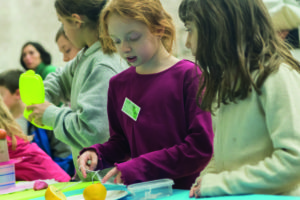Primary Years
Programme
The first steps towards an IB Diploma
A precursor to the IB Middle Years (MYP) and Diploma Programme (DP), the Primary Years Programme (PYP) is specifically designed for students aged 3 to 12. It aims to nurture and develop young students who become active participants in the lifelong journey of learning. This is an interdisciplinary, inquiry-based, and student-centred programme that goes beyond traditional education. The PYP is an example of the best educational practice globally, responding to the challenges and opportunities young students are facing in our rapidly changing world.



The PYP curriculum framework begins with the premise that students are agents of their own learning and partners in the learning process. It prioritises people and their relationships to build a strong learning community.
PYP students use their initiative to take responsibility and ownership of their learning. By learning through inquiry and reflecting on their learning, PYP students develop knowledge, conceptual understandings, skills and the attributes of the IB Learner profile to make a difference in their own lives, their communities, and beyond.
The six transdisciplinary themes used to organise the curriculum mark the starting point of the student inquiries. They provide authentic and real-life contexts for students to explore and engage with rich dialogue and ongoing collaboration to build an understanding of themselves, their wider community and the world.
Who we are
An inquiry into the nature of the self; beliefs and values; personal, physical, mental, social and spiritual health; human relationships including families, friends, communities and cultures; rights and responsibilities; what it means to be human.
Where we are in place and time
An inquiry into orientation in place and time; personal histories; homes and journeys; the discoveries, explorations and migrations of humankind; the relationship between the interconnectedness of individuals and civilizations, from local and global perspectives.
How we express ourselves
An inquiry into the ways in which we discover and express ideas, feelings, nature, culture, beliefs and values; the ways in which we reflect on, extend and enjoy our creativity; our appreciation of the aesthetic.
How the world works
Inquiry into the natural world and its laws, the interaction between the natural world (physical and biological) and human societies; how humans use their understanding of scientific principles; the impact of scientific and technological advances on society and on the environment.
How we organise ourselves
An inquiry into the interconnectedness of human-made systems and communities; the structure and function of organizations; societal decision-making; economic activities and their impact on humankind and the environment.
Sharing the planet
An inquiry into our rights and responsibilities in the struggle to share finite resources with other people and with other living things; communities and of the relationships within and between them; access to equal opportunities; peace and conflict.
Next
Steps
Your
Contact

Wayne Quenneville
Primary School Principal
